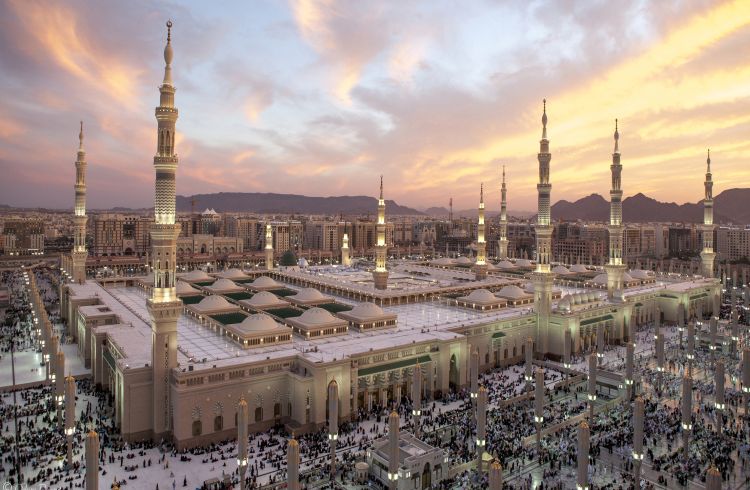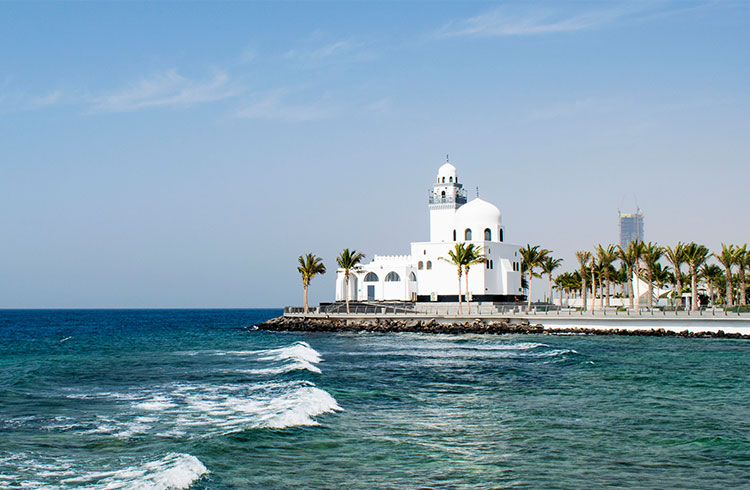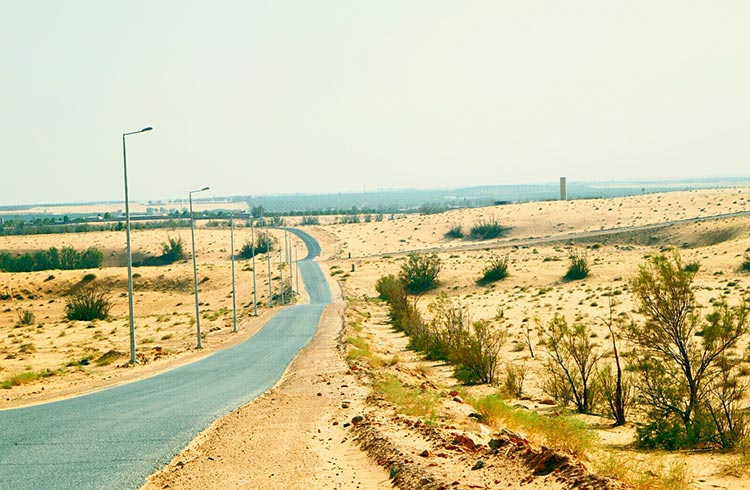Is Saudi Arabia Safe to Travel to? Respecting Local Laws
Saudi Arabia has embarked on a huge tourism drive, opening up to travelers eager to explore a previously elusive country. But what about the strict Islamic laws?
 Photo © Getty Images/orhandurgut
Photo © Getty Images/orhandurgut
Before you start booking your trip to Saudi Arabia, find out about visas, local laws and customs, restrictions on what you can and can't do, and safety tips for women and LGBTQ+ travelers.
- Tourist visas for travel to Saudi Arabia
- Law enforcement in Saudi Arabia
- Lese majeste
- Restrictions in Saudi Arabia
- Personal ID
- Safety tips for women travelers
- LGBTQ+ travelers
Tourist visas for travel to Saudi Arabia
It has never been easier to apply for a visa. Members of 49 nations, including the USA, Australia, and most of Europe, can apply for an e-visa online https://visa.visitsaudi.com/ and receive a response within minutes. The e-visa for tourists is valid for one year, for multiple entries of a maximum stay of 90 days each. If you cannot find your country of residence listed on its e-visa website, contact the Saudi Arabian embassy for more information.
Law enforcement in Saudi Arabia
The official system of law in Saudi Arabia is Sharia, which literally means ‘the path to water’. Sharia law has developed from holy scriptures, such as the Qur’an, Islam’s Holy Book, and the Sunnah, the sayings, and records of the Prophet Muhammad. It is as much law, as a guide to moral behavior. While many people baulk at Sharia law, it has to be stressed that as a tourist, visitor, or even expatriate, you are very unlikely to ever fall foul of the law, unless you really choose to ignore the local culture and laws.
Under the forward-thinking rule of Crown Prince Muhammad bin Salman, known as MbS, and Saudi’s 2030 Vision, the formerly feared religious police, or Commission for the Promotion of Virtue and Prevention of Vice (CPVPV), has today been stripped of most of its powers; flogging has been outlawed, and women given rights to travel alone, drive cars, and work freely.
For visitors, the law has eased to an extend that tourists do not have to cover up, although modest dress (covering shoulders and below the knee for both men and women) is advised. In hotels, even non-married tourists are allowed to share rooms, and single female travelers are welcomed, and are free to go anywhere.
Missionary behavior, such as preaching a religion other than Islam, is treated with extreme prejudice and considered a crime in Saudi Arabia. Yet, talks about building a church for Christian worship within the mega-development of Neom are ongoing, and private practice of other religions is tolerated. Travelers are allowed to bring a religious text, such as a Bible, into the country, but for personal use only.
Lese majeste
Publicly criticizing the King, the royal family, or the government of Saudi Arabia, is against the law, as is posting any criticism of Saudi Arabia’s law, policies, or behavior on social media platforms. Criticism of the flag of Saudi Arabia is considered insulting, as it bears the Islamic declaration of faith. Desecration or any other inappropriate use of the flag can lead to serious punishment.
Foreign nationals, and especially tourists, who breach any of these lèse majesté laws may not get as harsh a sentence as a local would, but could face deportation, even prison, depending on the severity of the criticism.
Restrictions in Saudi Arabia
Alcohol
The consumption, possession, manufacture, and distribution of alcohol is illegal throughout the country. Restaurants do not serve alcohol, although it's generally more lenient within residential compounds for foreign expatriates when it comes to homebrewing. However, anyone caught either smuggling or distilling alcohol in significant quantities can be prosecuted under Saudi law.
With the gigantic tourism developments, such as The Red Sea Development with its 50-odd hotels, and Neom, an entire new city, opening in 2022 and 2023, speculations are rife that alcohol laws are about to change, if only within select tourist resorts.
Ramadan
During the holy month of Ramadan, the date of which changes every year by around 10 days, it is respectful to avoid eating, drinking, smoking, and chewing gum, between sunrise and sunset hours in public. All restaurants are closed during the day, but many remain open between 5pm and 5am.
Drugs
Personal use, trafficking, or smuggling drugs in Saudi Arabia is illegal and punishment can include the death penalty. If you are bringing medication with you, carry a doctor’s prescription, preferably translated into Arabic.
Imports
Beyond the general importation ban of illegal drugs and weapons, alcohol, pork, and pornography are also expressly prohibited.
Pornography is widely defined and may include publications such as women’s fashion magazines. On occasion, portable media devices can be seized for inspection by authorities, and you may lose your device if it has anything deemed to be forbidden on it.
Photography
Taking photos in Saudi Arabia can be a touchy subject. Avoid taking pictures of government or military facilities, but, as a tourist, you won’t incur anything but a ticking off from the police if caught.
If you wish to take pictures of locals, and especially of women, simply ask. Many are more than happy to pose for an interested traveler, just do not attempt to do it sneakily, as that might just upset the wrong person.
Personal ID
Always carry your identification with you at all times, whether it's a photocopy or your actual passport. Saudi authorities reserve the right to check your identification, and this is a common occurrence especially if you are passing through security checkpoints.
Safety tips for women travelers
Female travelers can wear moderate clothing, which covers shoulders and ends below the knees, without any problems whatsoever in Jeddah, Riyadh, and tourist hot spots such as AlUla. If exploring more remote areas, you might feel more comfortable wearing a loose abaya, the long, flowing robe, typically black, but available and worn in many colors.
Neither local women nor female travelers have to cover their head, even if many choose to do so. It’s a simple and good idea to carry a scarf and abaya in your bag, for occasions where you might feel a little underdressed.
Women travelers can hire cars, and drive without a male chaperone. Despite the obvious separation of genders in many places, travelers have reported that locals are attentive, welcoming and go out of their way to make sure you feel comfortable and safe.
That said, lone female travelers are always at risk to some extent, whichever country they are in, and common-sense precautions should always be taken.
Find out more about important dress code laws and etiquette on the Visit Saudi website.
LGBTQ+ travelers
This is one issue where Saudi Arabia has not relaxed the laws, and LGBTQ+ relationships and being transgender are illegal. Punishments can range from fines to jail, or even the death penalty. Even if this is relatively unlikely to happen to tourists, it is still advisable to not be overtly LGBTQ+ in public, and to act modestly and respectfully.
Public displays of affection are not recommended, regardless of whether you are LGBTQ+ or not. Men and women must refrain from public displays of affection and avoid using profane language or gestures. Discretion is everything.
Related articles
Simple and flexible travel insurance
You can buy at home or while traveling, and claim online from anywhere in the world. With 150+ adventure activities covered and 24/7 emergency assistance.
Get a quote


22 Comments